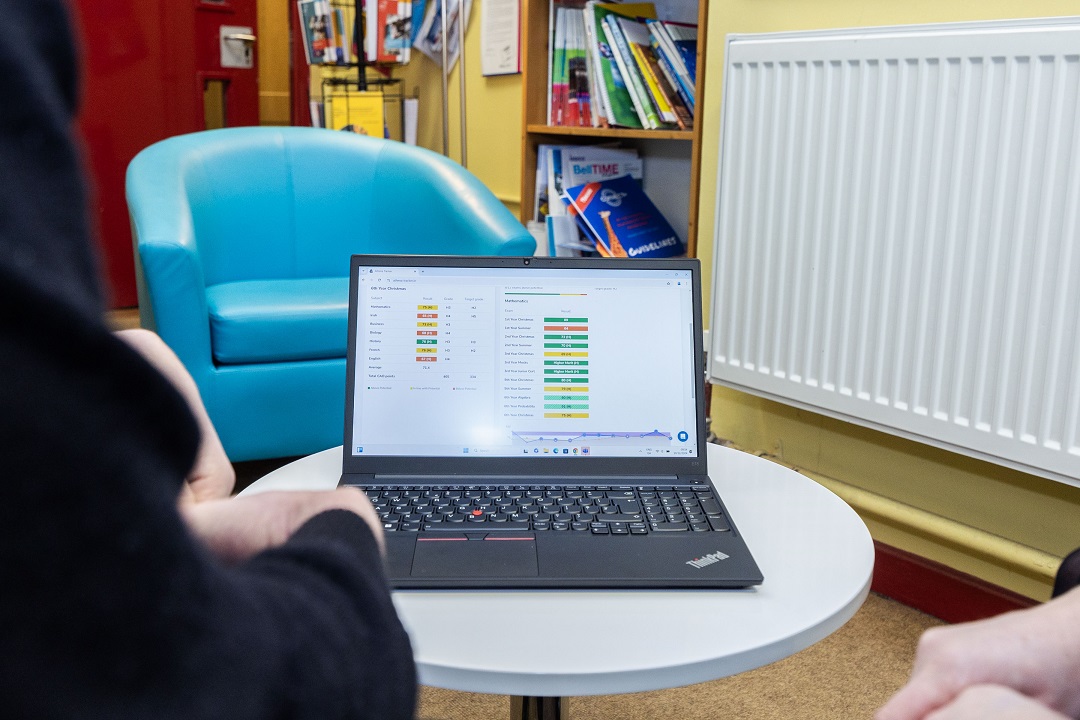The Athena Tracker, Athena Analytics’ academic monitoring software, was first launched in 2019. In the years since then, the tracker has achieved nationwide coverage, helping hundreds of schools to monitor the performance of their students and help individual students reach their own unique potential.
Initially, when the tracker was brought into secondary schools, it was invariably managed by either the principal or deputy principal. However, it wasn’t long before we noticed more and more schools appointing a post holder — an ‘Academic Tracking Post Holder’ or ‘Academic Monitor’, who was responsible for driving engagement of the tracker in their school. Although this post holder role is not a requirement for schools that are using the Athena Tracker, it has had a huge impact.
At Athena Analytics, we often get asked about this role and what it entails. The Academic Tracking Post Holder is responsible for monitoring student academic progress. The post holder analyses results throughout the year. They spot areas of strength, weaknesses, and potential issues or anomalies. They then communicate their findings with principals, year heads, or guidance counsellors. If a potential issue is uncovered, for example if a student is falling below their potential in a number of subjects, the Academic Tracking Post Holder intervenes and makes sure that the relevant supports are put in place.
5 Key Takeaways from Our Discussion With Academic Post Holder, Alan Lawlor
When asked about this role and how post holders use the Athena Tracker, we often direct people to a webinar we held with Alan Lawlor of Blackwater Community School in Waterford. Alan is a long-term user of the Athena Tracker, having first started using the software as a teacher in 2021 before taking up his AP2 post holder role. During a wide-ranging and informative conversation, Alan provided incredible insight, tips and strategies for how he, and the school, use the Athena Tracker.
In this blog post, we will share some of the key points. If you want to watch the webinar in full, you can do so here.
1. Getting up to Speed With the Athena Tracker
When Alan found out that he was taking up the role of Academic Tracking Post Holder he attended a number of information sessions to familiarise himself with the software and what it can do. However, as Alan explained, it was at the SuperUser Workshops where he really levelled up.
“I found the SuperUser workshops to be absolutely fantastic. I attended two of them (one for the 22/23 academic year, one in preparation for the 23/24 academic year.) I would highly recommend attending a SuperUser workshop…they are worth their weight in gold.
There are a number of different elements to them. The first is a recap of what you can use the tracker for. There may be features that you might have forgotten about, even if you are using the software quite regularly. It’s nice to go through them and see it all laid out in front of you. If you have any questions on it, you can ask whoever is leading the session.
After that, what was excellent was getting to talk to different people from different schools. I found that to be incredibly informative and beneficial. I swapped email addresses with teachers from other schools so that I could follow up on different initiatives that they were doing, that I thought we could implement at our school.”
Later on in the discussion, when asked how to get buy-in from other staff, Alan stressed the importance of getting up to speed on the software yourself first. Alan himself used the software for several months before presenting to other staff members. The SuperUser workshops again were vital here. You can find out everything you need to know about SuperUser workshops here.
2. Using the Athena Tracker for Academic Tracking and Putting Interventions in Place
As an AP2 post holder, academic tracking is a central part of Alan’s role. To monitor student performance, Alan and the team at Blackwater Community School follow a clear process, with the Athena Tracker at the heart of it.
“We have four end-of-term assessments at the school — Halloween, Christmas, Easter and Summer. After each assessment, my job is to look at how each student is performing across the board, year by year. I then liaise with the year heads to let them know which students are underperforming according to their own potential.
After that, we devise emails that we send to the entire teaching cohort, year group by year group, to let them know what students could be struggling {academically}. In addition to that, we met up with the pastoral care team, which is headed by the guidance counsellors. We pass on information to them. They then might decide to organise meetings with certain students to check in on them and see how they are doing.”
Later, when asked about the interventions they put in place, Alan provided 3 key steps.
- Inform the subject teachers about which students are underperforming according to their own potential so that they can check in with them.
- If a student underperforms in several end-of-term exams in a row (for example, at Halloween and Christmas), they pass on information to the year heads, who either set up a meeting with the student themselves or pass on information to the guidance counsellors.
- If a student is underperforming consistently, and interventions have already been put in place, the school may call the student’s parents to let them know what is happening and what is being done about it.
3. Athena Tracker’s Role in Monitoring Academic Attainment
The process outlined above is also used when monitoring academic attainment at the state exam level. For students in the Junior Cycle and Leaving Cert, Alan reviews the Expectation Summary (a key feature within Athena Tracker which shows when a student is underperforming in multiple subjects).
Blackwater Community School has set their Expectation Summary to highlight students who are underperforming vs their own potential in at least 60% of their subjects. If a student falls into this category, Alan and the school are incredibly proactive and make sure the right supports are put in place right away. This is especially important during state exam years where a downturn in performance could lead to underperforming in the state exam.
If a student continues to underperform in consecutive in-term exams, they look at escalating the issue and putting additional interventions in place.

4. Spotting Anomalies – How the Athena Tracker Can Highlight Other Issues
While the Athena Tracker can highlight when a student is underperforming academically, it can also point to deeper issues that could be at play. During the webinar, Alan shared an important story about a student experiencing a sudden drop in performance.
“At the Christmas assessment just gone by, I was reviewing the results with one of the year heads. When we looked at the results on VSware, nothing immediately jumped out. However, when we looked at the tracker, we noted that one particular student, who we would have earmarked as being very high-achieving, showed up on the list as underperforming in over 60% of their subjects. This was a bit of a surprise to us.
Underperforming for this student wouldn’t be failing their exams or anything like that. It was that they would have been expected to get H1s, H2s, H3s as a minimum in most subjects and they weren’t achieving that. Looking back on historical results, we noted that this was the first set of exams that this student had underperformed in more than one exam. This set off alarm bells so we set up a meeting with the guidance counsellor.
It turned out the student was incredibly anxious about their exams and it was starting to get on top of them. Now, we’ve started conversations and are working with the student. It was great that we were made aware of this and we can keep an eye on it.”
This story highlighted a key benefit of the Athena Tracker, which is bringing attention to external pressures that might be impacting a student’s performance.
5. Using the Athena Tracker for Student Mentoring
Blackwater Community School has a mentoring programme and Alan makes sure that all teachers have everything they need to make this entire process as straightforward and painless as possible.
“We have 140 Leaving Cert students at the moment. At the start of the year, teachers volunteer to mentor some of those students, usually with groups of 3 or 4 students per mentor. I then set up groups on the Athena Tracker so that teachers can monitor the performance of their groups over time. I make sure that the data is kept up to date.”
Alan went on to explain how the Athena Tracker has made mentoring much easier for teachers.
Instead of having to search for data related to the 3 or 4 students that they are mentoring, the data is there right in front of them on the tracker.
Once again, we would like to thank Alan and Blackwater Community School for sharing their experience of using the Athena Tracker.
To learn more about our award-winning academic tracking software, click here.


